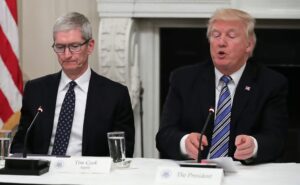As the Biden administration moves toward implementing stricter controls on the export of artificial intelligence (AI) chips, tensions are escalating between the U.S. government and leading technology companies. Industry leaders have expressed deep concerns that such regulations, if hastily finalised, could undermine America’s global leadership in AI innovation while ceding critical market opportunities to international competitors.
The Information Technology Industry Council (ITI), representing tech giants such as Amazon, Microsoft, and Meta, has publicly urged the administration to reconsider the imminent rule. According to ITI CEO Jason Oxman, the proposal—which may be finalized within days—imposes “arbitrary constraints” on the ability of U.S. companies to sell advanced AI chips abroad.
“Rushing a consequential and complex rule to completion could have significant adverse consequences,” Oxman stated in a letter to U.S. Commerce Secretary Gina Raimondo, emphasizing the potential risks to U.S. global leadership in AI development.
The proposed rule is part of an effort by the Commerce Department to prevent advanced AI technologies from enhancing adversaries’ military capabilities, with a specific focus on China’s AI advancements. The restrictions would regulate global exports of high-performance computing systems, ensuring these technologies do not empower “bad actors.”
However, critics argue that the broad and sweeping nature of the proposed “Export Control Framework for Artificial Intelligence Diffusion” may harm the U.S. tech sector more than its intended targets.



